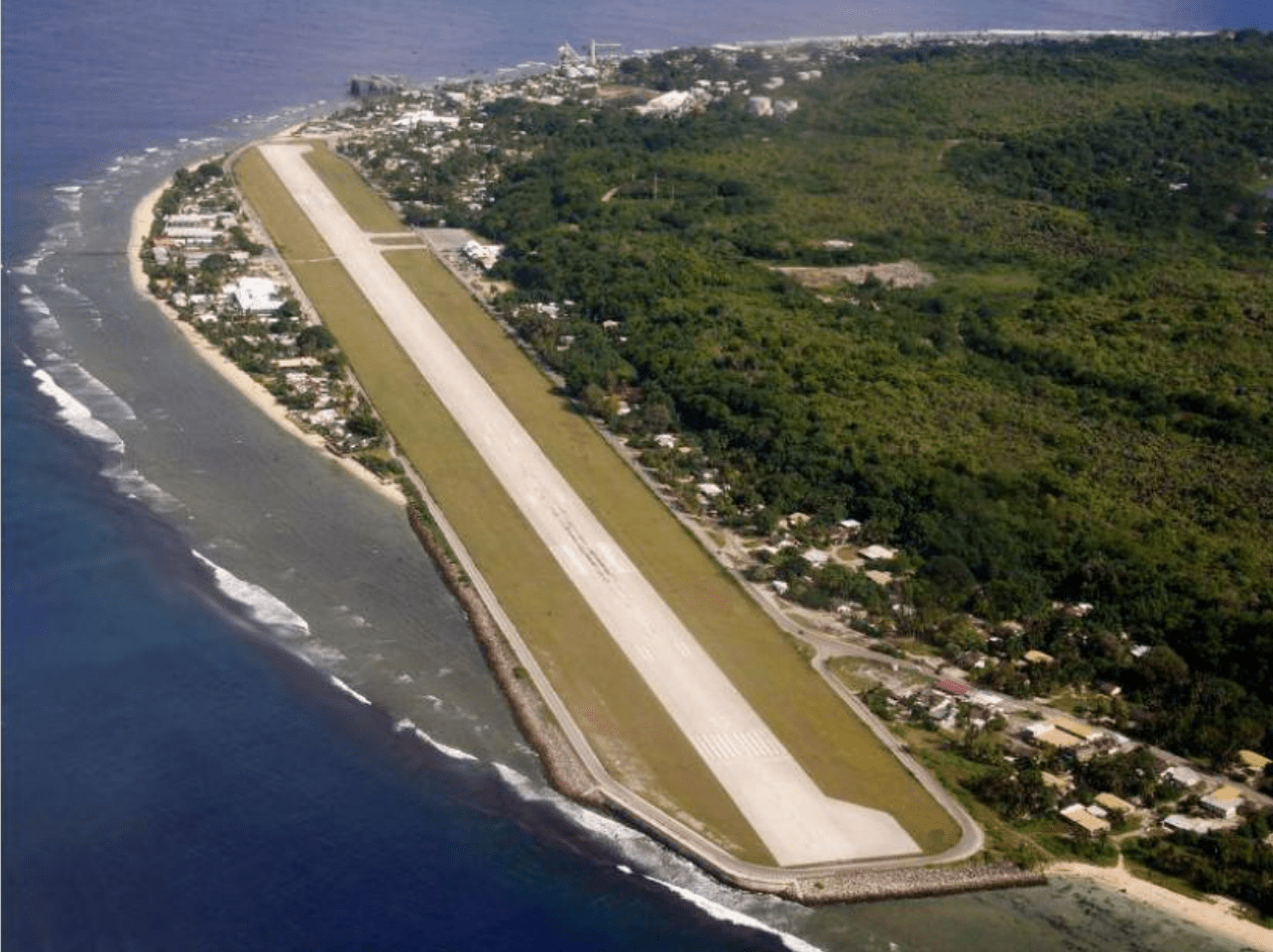Nauru airport
When you mention the Republic of Nauru usually people have not heard of the nation, or worse link it it inextricably to the controversial Australian resettlement of refugees to the island nation. In actuality, the nation is not only a massive victim of massive victim of colonial excesses but is increasingly becoming an important chess piece in Cold War 2.0.
If you have not heard of Nauru you really should not feel all that bad. The Republic of Nauru is not only tiny and sparsely habituated (13,000), but due to its remoteness is also the least visited country on earth, quite literally. As things stand just over 100 people visit every year, refugees and Australian workers notwithstanding.
The Tragic History of Nauru
Originally settled by Micronesians 3000 years ago, with evidence of Polynesian (link) influences too, things remained largely stable until the onset of European colonization.
By the 1870’s the country was split into 12 tribes (3 of which no longer exist) when the Germans decided to sell guns and alcohol to the island. This led to the Nauruan Civil War, which would see over 1/3 of the island perish.
Germany duly took over the island after phosphate reserves were found and things were to be far from plain sailing after this.
Following World War 1 it was taken over by Australia, before becoming a League of Nations mandate, a colonial situation that would last until 1968, notwithstanding a brutal occupation by the Japanese in World War Two.
Attempted Forced Relocation of Nauruans
After riots, civil unrest, and the slow but sure destruction of the interior of the island through over-mining the Australians came up with the novel idea of relocating everyone from Nauru to the much larger Curtis Island off of Australia.
To do this though would have meant having only “freehold” title and losing not just their historical homeland, but also their very nationality. This of course could be worthy of its own article, but suffice to say was rejected and instead, Nauru not only became a republic in 1968, but took over the mines.
From Rags to Riches in Nauru
Becoming independent as a republic briefly made Nauru the richest per capita country on earth, with a sovereign wealth fund that should have had it set up in perpetuity.
Alas with no interests in the mines the former colonial powers left Nauru alone, the fund was squandered and by the late 1980’s Nauru tried to take legal action against Australia for the massive environmental damage that had been caused to the country.
As such a small nation this obviously did not go far and the country needed money. This would lead to the political pawn phase.
Prelude to the Pacific Solution
In order to get money Nauru followed a number of different routes including the selling of passports and banking licenses as well as trying to become a tax haven.
Alas without external help and indeed international pressure these were destined to fail, which to an extent made Nauru a pawn open to whoever wanted to be friendly.
This led to loans from Russia, which meant Nauru recognized Abkhazia and South Ossetia and indeed created what can only be described as a firm friendship to this day. Russians do not need a visa for the nation. Nauru for its part has also been largely silent on the war in Ukraine (link to EA).
With regards to China relations, the nation has been equally pragmatic flip-flopping between the regional norm of Taiwan recognition to that of the People’s Republic of China. Currently, the ROC is officially recognized, but PRC citizens not only make up 10% of the population but dominate the private sector.
Nauru and the Pacific Solution
With boats coming to Australia ram packed with largely economic migrants Australia decided to set up a processing centre in Nauru, rather like what is happening with Rwanda in the UK right now.
The policy which was to last over 20 years provided to be a huge boost to the economy of Nauru, as well as the start of a serious upgrading of infrastructure.
It was though also highly controversial, with claims of mistreatment and rapes in the detention centres, although the reality was somewhat different.
Most of the so called refugees were allowed to not only live among the local population, but work and even start businesses, with their primary complaint being that Nauru is “boring”. Surely if you are flying genocide, or persecution then boredom should be the least of your worries.
Nauru though were great hosts throughout
Contemporary Socialist Nauru
Nauru today still receives money from Australia, as well as some mining that still goes on, which is supplemented by money from the selling of fishing rights.
This has afforded the nation the ability to give people a living wage, as well as provide free medical care, schools, and a successful state-run airline.
Of course, all the best jobs are still in the public sector, but one might add that this is Melanesian Socialism actually working in practice.
Essentially though the economy is still propped up by Australia, but this is something it will have to keep doing less it wants to send Nauru the way of Kiribati and the Solomon Islands.
China after all ask for much less in return when they help financially…

